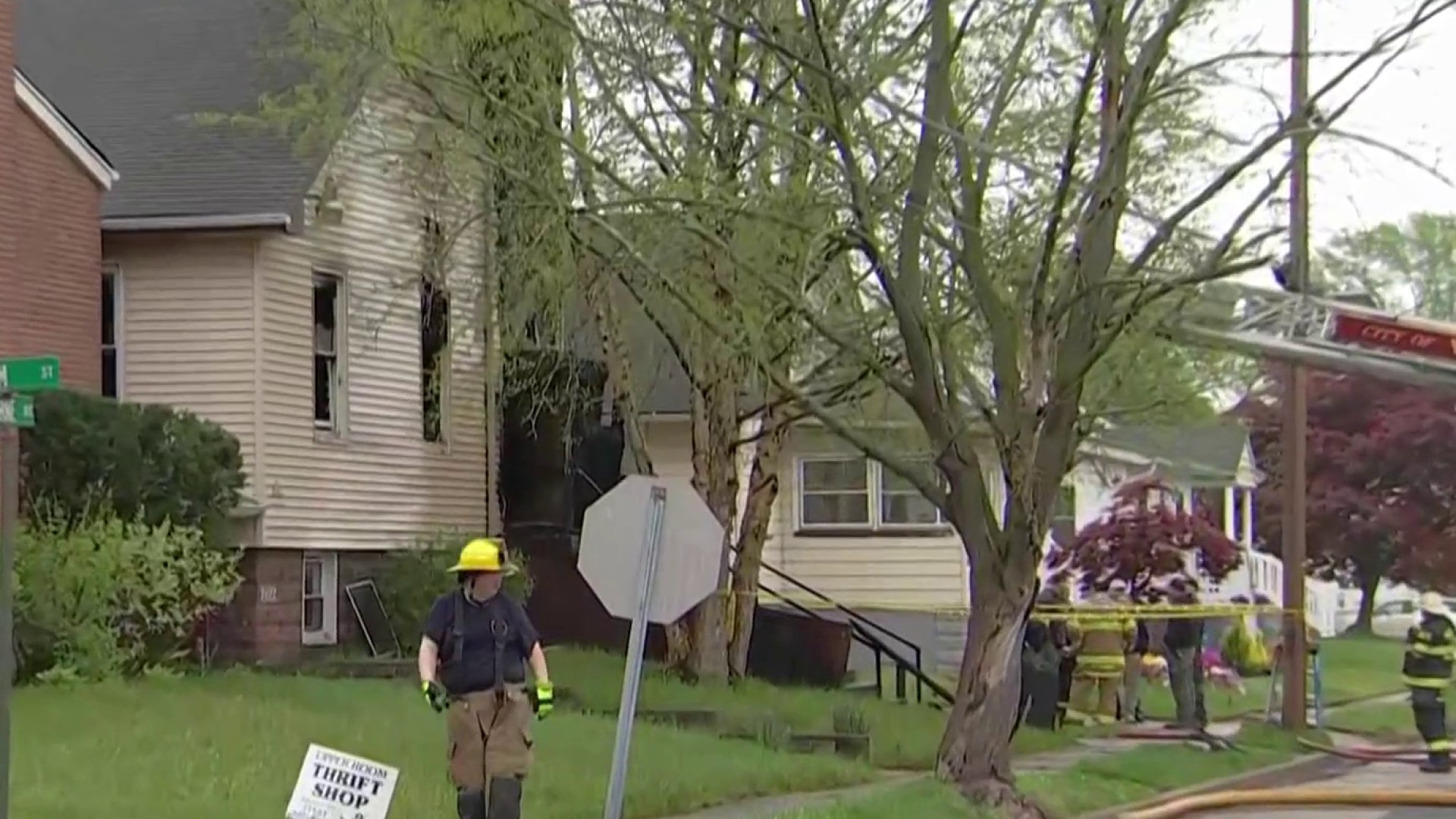More than a decade ago, home schooling was considered alternative and students may have been stigmatized as living in a bubble.
But now, home schooling has grown from 5,000 students in 1990 to a stable 22,000 since about 1998. Nationally, there are about 2 million home-educated students, the National Home Education Research Institute said.
Whether the state's myriad of regulations protect or hamper home-school education, divides exist for those invested in the culture.
Some teachers have resigned to home-school their children.
"It's common knowledge a lot of districts are really tied to test results,'' said Kristy Wall of Hollidaysburg, a first-year home-school parent and former public school teacher for 17 years. Six of the parents in her weekly science meetings at the Hollidaysburg Public Library are former public school teachers, she said, adding that she would not have left teaching if her 7-year-old son had not asked to be home-schooled.
Certification is not required to home-school a child, but Wall, certified to teach up to middle school, said she will investigate cyber courses if her son continues home schooling during his high school years.
"Where we have taken education prior to No Child Left Behind (of 2001) compared to how mandated education is these days, there's been a great shift. I've seen a great difference in how I've been able to teach,'' she said.
Local
Breaking news and the stories that matter to your neighborhood.
The state is no longer bound by some federal NCLB requirements, but parents are now contending with curriculum shaped by new standardized state exams at their children's schools.
___
Pennsylvania is among the most-regulated states for home schooling, requiring meticulously maintained portfolios, fulfilled course requirements and standardized tests.
In Kansas, where Penn State student Neil Meyer spent a majority of his childhood, home schooling is unregulated.
Meyer, 26, recalled a time, while getting his hair cut as a child, when he was asked how school was going and what grade he was in.
"It was tough to respond to that, because I never knew what grade I was in,'' he said.
Speaking between classes at Penn State, Meyer struggled to reconcile his negative home-school experience with his thriving college career. He was careful when sharing his perception to be fair to his parents.
"They instilled in us a sense of pride,'' he said. Formal instruction after second grade, however, was absent, said Meyer, who's lived in Huntingdon for about eight years.
He commutes almost daily to Penn State. He's earned numerous research grants and entrance to the McNair's Scholar program providing financial and academic preparation for first-generation college students to pursue graduate school.
He was recently honored with the Penn State Outstanding Adult Student Award and is pursuing clinical psychology graduate school next year.
He said his home schooling is a sensitive and complex topic within his family. Meyer's mother did not return a phone call, but Meyer said he spoke about the story with her.
"She seemed a little disappointed, and she definitely had her own take on the situation. Prior to today, my mother was unaware that the extremities of my childhood have played a major part in my personal statements and past successes,'' he said.
He remembers his mother going to home-school conventions every two years to buy books for him and his brother until Meyer was age 15. Their parents took them on trips to the orchestra or the zoo for educational enrichment. At home, they hounded him to "Hit the books.''
The highest mathematics book he possessed through his teenage years was fifth-grade level. When he reached high school age, doubts about his education caused emotional strain.
"I wanted to go to high school but thought I would do terribly. Once I was old enough to speak for myself, I was caught in a cycle of ambition and self-doubt.''
___
A vast majority of home-school parents handpick their instructional materials, custom designing the curriculum to suit the needs of their children, the family's lifestyle and government regulations, states a past study of the home-school Legal Defense Association.
According to that study, home-educated students excel on nationally normed standardized achievement exams and outperforming their public school peers by 30 to 37 percentile points across all subjects. And the HLDA found the degree of governmental regulation from state to state has no significant effect on the academic performance of home-schoolers.
The Pennsylvania Home Educators Association advocates deregulating home schooling in the state.
"Paperwork does not educate the child,'' states research by PHEA Advisory Board member Maryalice Newborn.
Newborn has been home schooling for 20 years.
Pennsylvania Home Education Law does not increase education. It only increases school district costs and paperwork for all,'' she said
"All of my children and son-in-law, (home-schooled in Michigan, an unregulated home-school state) graduated undergraduate with highest honors,'' she wrote in an email.
Her research states that of the 37 states with home-school laws, Pennsylvania has more requirements for home-schoolers and school districts.
"Twenty-two states have amended their laws to a less restrictive, less paperwork, less burdensome on the state and families,'' she states.
Pennsylvania annually requires a heavy stack of records for home schooling: A notarized affidavit attesting an appropriate education will be administered, an outline of proposed objectives, a portfolio of samples, a log of read materials, standardized testing and evaluations by a privately contracted third party to certify appropriate education is occurring. All of that information is to be sent to the district superintendent for further review.
"The reality is that government involvement in home education does not educate the children; it only costs taxpayers money,'' she said.
___
The Pennsylvania Homeschoolers Accreditation Agency is not in favor of changing the state's home-school law. Susan Richman, a course coordinator, parent of four home-schooled children and home-school portfolio evaluator, has seen home schooling from many angles.
"I think Pennsylvania law helps students not fall through the cracks,'' she said.
"A school district employee in charge of reviewing home-school portfolios once called me to vent: `There are two types of home schooling families. Those who know what to do, nicely done portfolios including photos and drawings _ we knew they were treasured family items.'' And there are the other types, he said, referencing one a dirty file folder with five pages torn out of a spiral notebook, no log of studies or standardized testing and a one-sentence statement from an unqualified evaluator. That child has since been enrolled in public school because of the school district's review.
"With some, you got to be honest that home schooling is not serving the child well,'' she said.
"As much as people grumble about government accountability, it can be a good thing,'' she said.
___
At Penn State, Meyer has impressed professors by showing a genuine love of learning.
"He approaches education more seriously because he didn't come through traditional K-12 system,'' said Teresa Tassotti, director of the McNair Scholars program at Penn State.
"A lot of people in his situation would not have made the decisions he made. In that way, he is a real model for people,'' Tassotti said. "Most students see it as, `OK I gotta get this degree so I can move on.' He sees it as more of a gift than a commodity,'' Tassotti said.
A demographically wide variety of people home-school, said Brian D. Ray, president of the National Home Education Research Institute.
Meyer said his parents, especially his father, a pastor, insisted on home schooling because of religious reasons. Meyer's home schooling largely consisted of him muddling through a textbook on his own volition and conducting Internet searches and reading tutorials on topics that interested him, he said. He kept up on current events by watching Peter Jennings each night.
Because he declined to give a sermon at his father's church as a public-speaking assignment, he did not earn a diploma.
___
Meyer moved to Pennsylvania at age 18, where he worked at Wal-Mart and years later, took an adult education course to earn a GED, passing the test with a near perfect score.
Socially, Meyer adjusted quickly to the workforce and his life outside of his home. He made friends; and he met his partner who he's been in a relationship with for eight years now.
"In the workforce I realized I had skills I wasn't aware of. I learned I had interesting opinions and people liked them,'' he said.
Through his job at Wal-Mart, he discovered his interest in people and in psychology. Within two years of working there, he was an employee training coordinator.
"As a training coordinator, I developed an interpersonal skill. I loved hearing stories about other people. People would come to the office, and they would talk with me about workplace problems. I would talk to managers who were able to work out solutions. I liked helping people who were going through a crisis or difficulty,'' he said.
___
In Huntingdon County, dozens of home-schooled students attend Juniata College each year. But unlike Meyer, some home-school students accelerate through home schooling to enter college as early as age 16, said Juniata Director of Academic support Sarah May Clarkson.
She finds that most home-schooled students who come to Juniata are mostly home-schooled under Pennsylvania regulations. She said they tend to perform well academically, although they may deal with emotional strain.
"A lot of those students are socially awkward. They have anxiety and emotional issues. College is a huge emotional challenge,'' she said. "Public school, despite its flaws, prepares students for the world. There's not that same imperative when a child is sitting at home.''
Meyer, however, showed little discomfort when he moved away from home. He initially pursued college by walking into Juniata College, a 19-year-old with no roots in Pennsylvania and no high school diploma.
___
"I gave my life story to the dean. I had a lot less confidence than I do now. They had me take a competency exam. Then they told me my parents would have to sign off on loans because I wouldn't be considered an independent until I was 23,'' Meyer said.
Meyer waited until he was considered financially independent at age 23 and earned his GED so that he could pursue a Penn State education.
"The desire to go to school never died in him,'' Ken Levy, Penn State associate professor of psychology, said.
As a freshman, Meyer obtained work in Levy's research lab. "Most freshman psychology majors aren't thinking of that,'' Levy said. "He's been doing research for the last four years.''
Meyer has started applying to graduate schools.
Preparing for a home-school culture fair at the Hollidaysburg Area Public Library in October, Wall said she consented to her son's home schooling on the condition he be socially active. Having served as a home-school evaluator, she said students typically have activities in their portfolios.
"It is rare to look at a portfolio and not see sports, Scouting, music lessons, church activities,'' she said.
In Pennsylvania, school district activities are open to home-schoolers. She hopes her son participates.
Original article here



